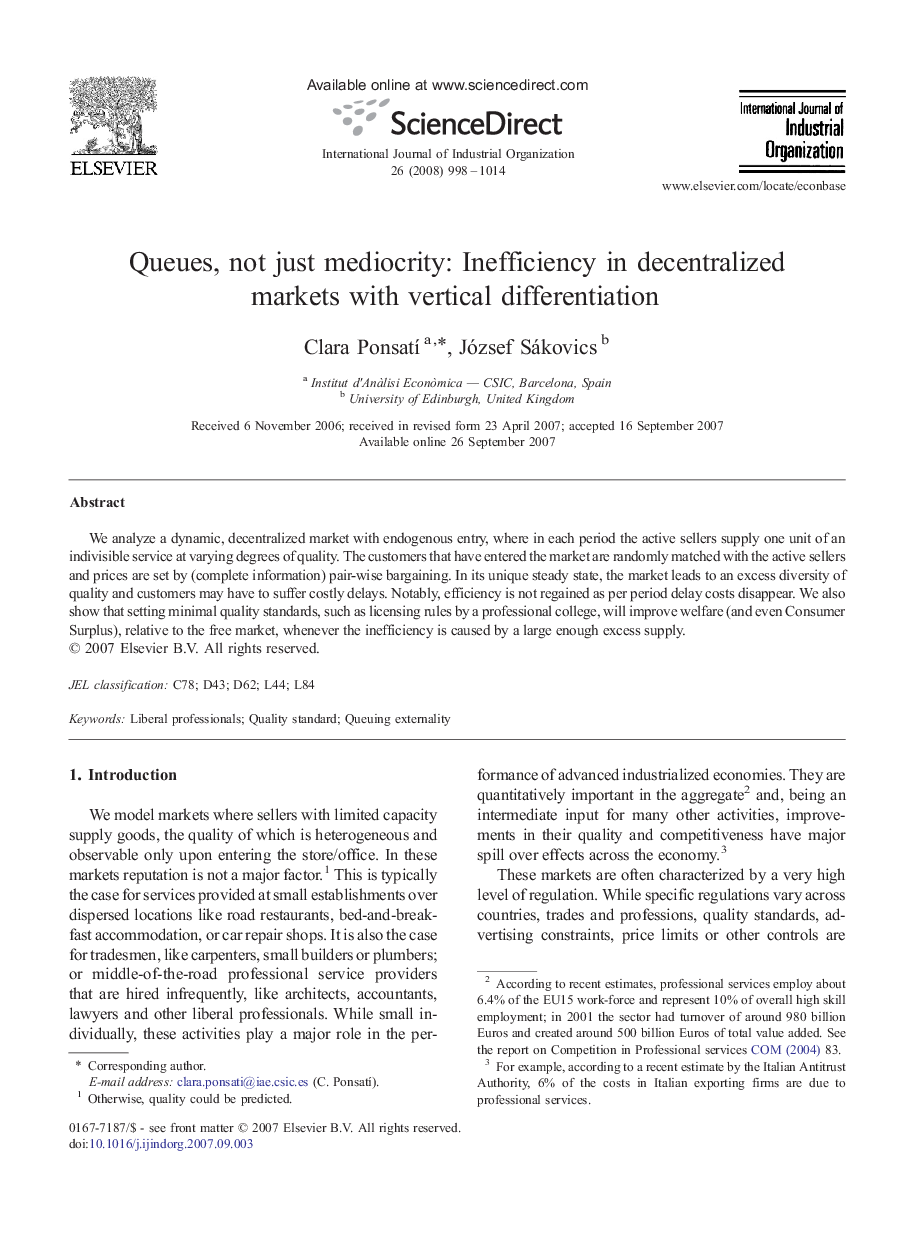| Article ID | Journal | Published Year | Pages | File Type |
|---|---|---|---|---|
| 5078742 | International Journal of Industrial Organization | 2008 | 17 Pages |
Abstract
We analyze a dynamic, decentralized market with endogenous entry, where in each period the active sellers supply one unit of an indivisible service at varying degrees of quality. The customers that have entered the market are randomly matched with the active sellers and prices are set by (complete information) pair-wise bargaining. In its unique steady state, the market leads to an excess diversity of quality and customers may have to suffer costly delays. Notably, efficiency is not regained as per period delay costs disappear. We also show that setting minimal quality standards, such as licensing rules by a professional college, will improve welfare (and even Consumer Surplus), relative to the free market, whenever the inefficiency is caused by a large enough excess supply.
Related Topics
Social Sciences and Humanities
Economics, Econometrics and Finance
Economics and Econometrics
Authors
Clara PonsatÃ, József Sákovics,
